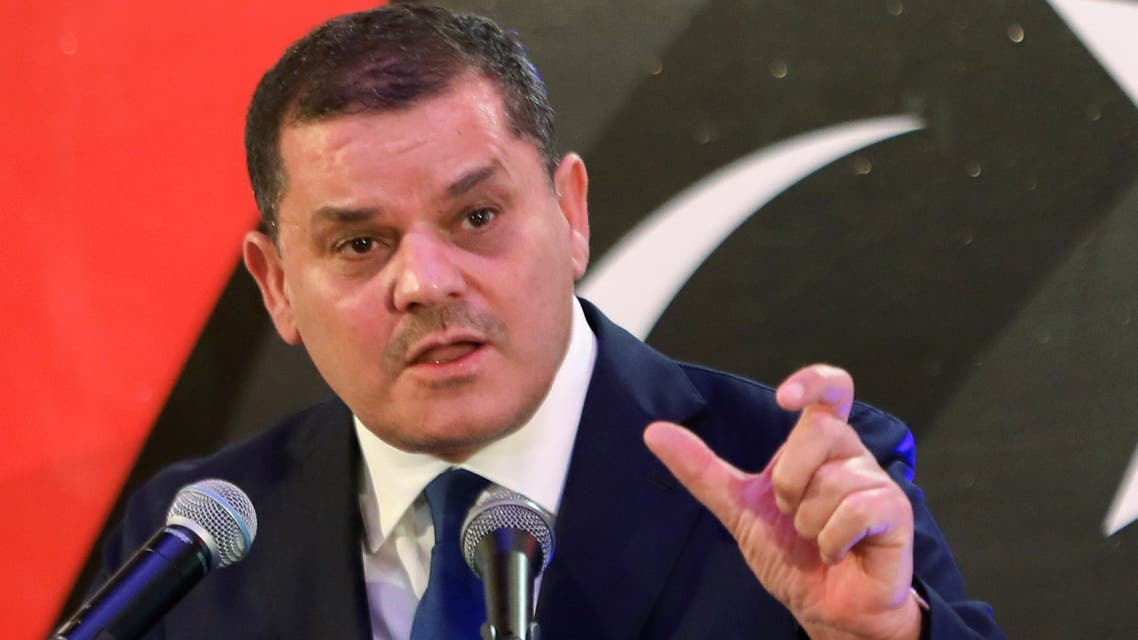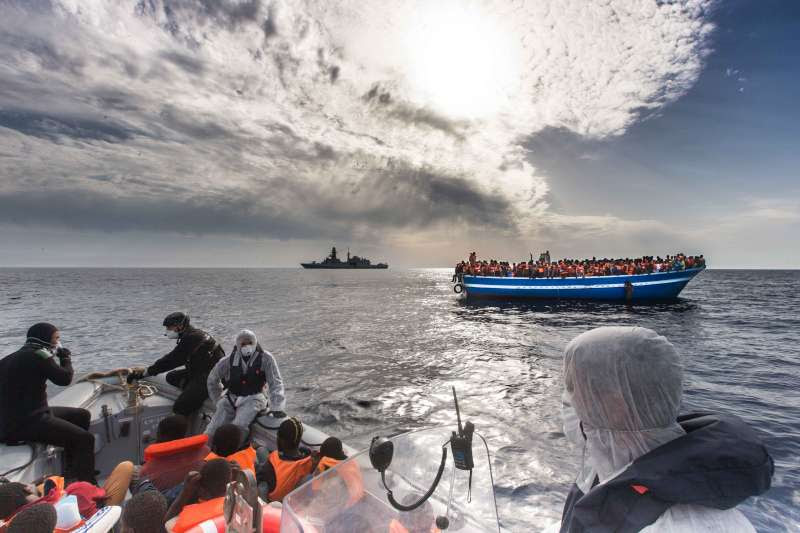At least four dinghies reached the shore at Dungeness in Kent on Sunday, carrying dozens of people desperate to reach Britain before worsening winter weather makes the crossing impossible. This latest group of arrivals will add to the 24,700 migrants who have crossed the Channel in small boats already this year, triple the 8,404 who arrived in 2020.
“There will be more on their way,” an eyewitness told The Sunday Times. “It’s absolutely flat calm conditions and the weather is turning more unsettled next week so I expect they know they’ve got to make the most of this last weather window.”
Fleeing despair at home, many migrants embarking on this uncertain journey hail from countries plagued by conflicts, such as Yemen, Eritrea, and Sudan. But as volatility continues to dominate Libya’s political climate, a new wave of migrants may soon be on their way.
This fear is exacerbated by reports that Libya’s incumbent prime minister, Abdul Hamid Dbeibeh, has applied to run for the presidency. His candidacy has been brought into question by a string of allegations that he is embroiled in corrupt practices, money laundering, and financing of Ideological Islamists.
One of the most shocking allegations, revealed by a recent UN inquiry, is that Dbeibeh gained power after his supporters offered bribes as high as $200,000 to attract votes during the UN dialogue forum process. The other candidates for the upcoming elections on December 24 offer Libya little prospect of political stability either.
“Libya is supposed to be heading toward a new democratic phase, where the people get to choose a president, a very important transition after 10 years of fragmentation,” said Abdulkader Assad, the chief editor of The Libya Observer and Libya Alahrar English. “Yet the list of candidates includes former ministers and officials, some war criminals… and some foreign-agenda-driven persons.”

Abdul Hamid Dbeibeh
Set to feature on the ballot paper is General Khalifa Haftar, a leading figure in the east of the country that has been accused of war crimes and mounted a year-long assault on Tripoli, making him next-to-impossible for those in the west of the country to accept.
Other candidates include Saif al-Islam Gaddafi, the son of the country’s former dictator, Muammar Gaddafi. Saif, who has spent the past decade out of public sight since his capture in 2011 by fighters in Zintan, is currently the subject of an ICC arrest warrant for crimes against humanity.
The candidates are not the only problems plaguing Libya’s upcoming elections. Indeed, questions abound as to whether the Libyan authorities can hold free and fair elections at all. This follows concerns over Libya’s restrictive laws that undermine freedom of speech and association, as well as the presence of armed groups accused of intimidating, attacking, and detaining journalists and political activists.
As questions continue to surround the legitimacy of the upcoming elections in December, fears mount that greater instability is on the horizon. Indeed, concerns have been raised that the elections could risk a return to violence and further fragmentation in Libya should the country fail to fairly elect a leader entirely committed to delivering an inclusive country built on a robust institutional framework.
In light of Libya’s recent history, it is clear political stability and strong governance is needed now more than ever.
Indeed, since the fall of Gaddafi in 2011, Libya has buckled under economic uncertainty, militia violence, foreign intervention, and a civil war that has fractured control of Libya into disparate centres of power.
As tribal regimes and political groups vied to fill the power vacuum created by Gaddafi’s death, a major conflict emerged between two groups: The Libyan National Army (LNA) led by the former army general Khalifa Haftar, and the Government of National Accord (GNA), a United Nations-led initiative.
Resulting in what has been described by Alessia Melcangi, a senior fellow at The Atlantic Council, as a “period of profound instability and chaos”, the conflict has left a heavy toll on Libya’s civilian population. The United Nations Refugee Agency (UNHCR) estimates that 1.3 million people are currently in need of humanitarian assistance, with more than 200,000 Libyans internally displaced.

Illegal migrants from Libya attempt to cross into Italy’s territorial waters.
Reconciliation and reunification of Libya will not happen unless elections go ahead as planned on December 24. But many hold serious doubts that they will.
With Libya facing a real risk of political instability, Europe must prepare for a new wave of Libyan migrants that feel they have little option but to make the dangerous journey across the Mediterranean.
Yet, all hope is not lost. With the elections almost five weeks away, greater commitment from the international community to ensure the elections proceed under free and fair conditions would go a long way to safeguarding Libya’s future and preventing the impending humanitarian crisis.
-------------------------------------------
By: Nicholas Waller
Title: Instability in Libya is set to exacerbate Europe’s migrant crisis
Sourced From: www.neweurope.eu/article/instability-in-libya-is-set-to-exacerbate-europes-migrant-crisis/
Published Date: Fri, 26 Nov 2021 14:14:39 +0000
Read More
Did you miss our previous article...
https://badpoliticians.com/uk-politics/orsted-investigates-green-fuels-and-renewable-hydrogen-in-denmark
 UK PoliticsWorld PoliticsVideosPrivacy PolicyTerms And Conditions
UK PoliticsWorld PoliticsVideosPrivacy PolicyTerms And Conditions
